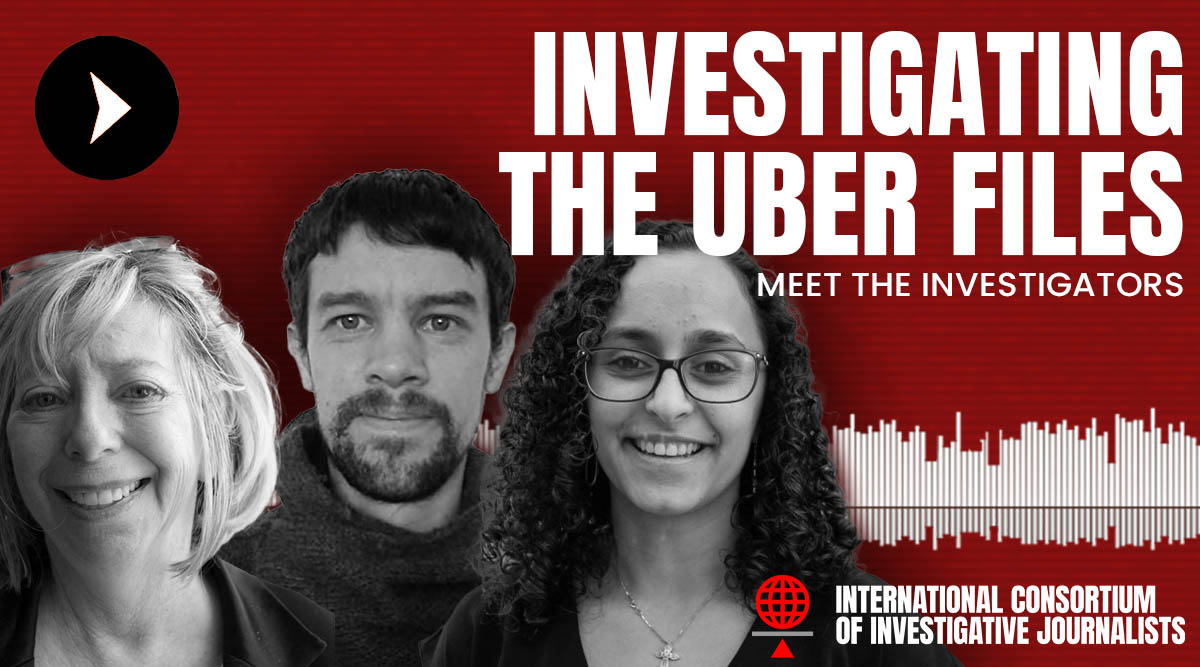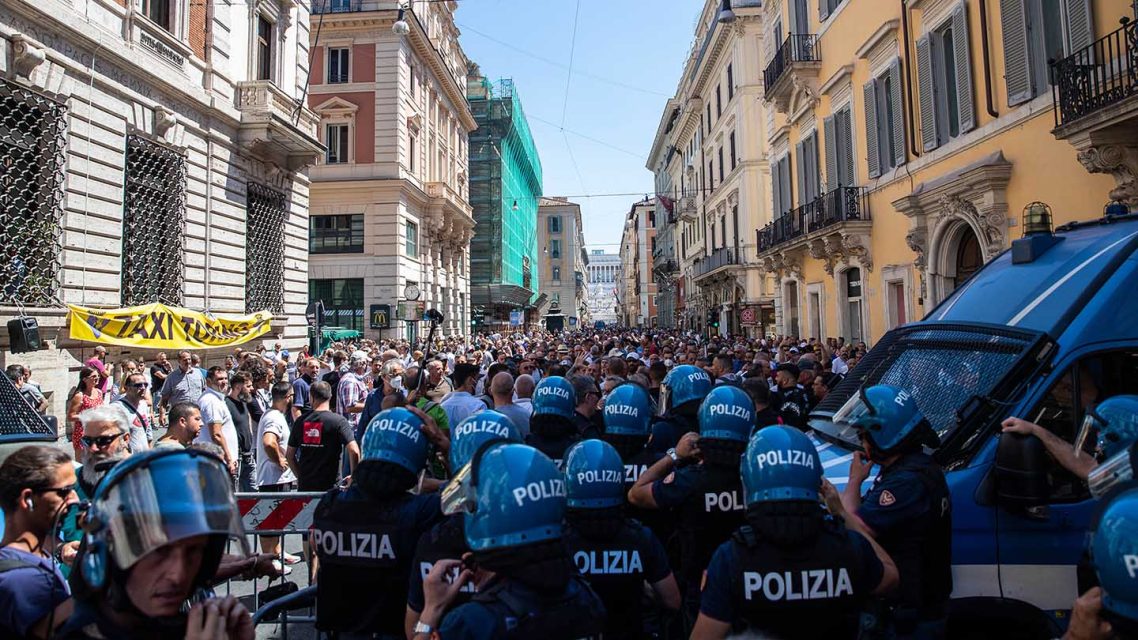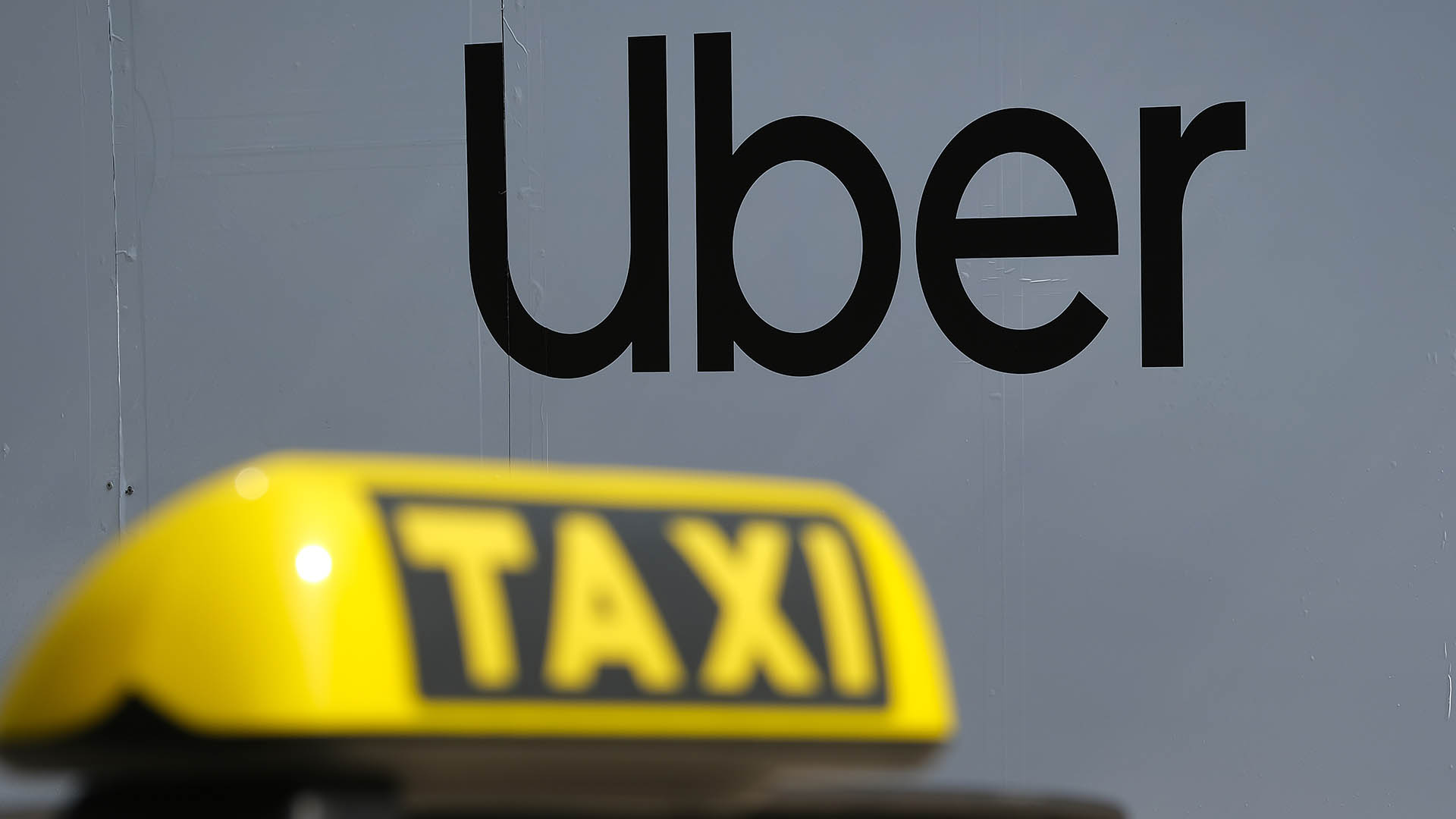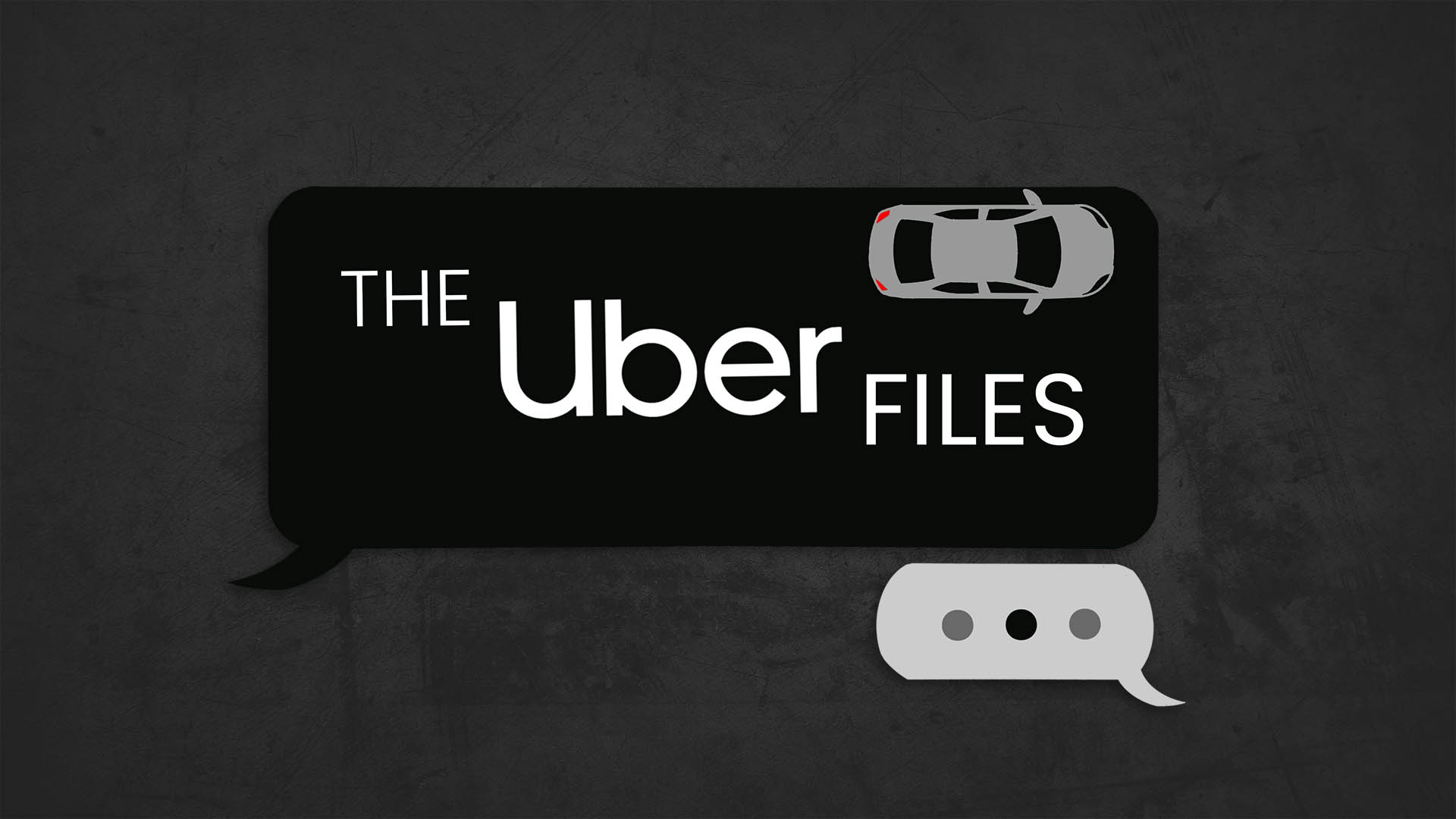Meet the Investigators podcast: Uncovering the Uber Files
In this special edition of our podcast, we go behind the scenes of ICIJ’s investigation into the ride-hailing giant’s massive lobbying campaign during its rapid international expansion.

The International Consortium of Investigative Journalists collaborates with hundreds of members across the world. Each of these journalists is among the best in his or her country and many have won national and global awards. Our monthly series, Meet the Investigators, highlights the work of these tireless journalists.
In this special edition of our podcast, ICIJ Chief Reporter Sydney P. Freedberg and ICIJ media partner Damien Leloup from Le Monde talk about the revelations and impact of the Uber Files, ICIJ’s investigation into the ride-hailing giant’s massive lobbying campaign during its rapid international expansion. The Uber Files expose how, between 2013 and 2017, Uber brazenly entered countries in defiance of local laws, thwarted investigations and upended workers rights in an effort to dominate the ride-hailing market.
TRANSCRIPT
Nicole Sadek: Welcome back to Meet the Investigators from the International Consortium of Investigative Journalists. I’m your host, Nicole Sadek.
I want to start with a story.
In 2019, I was a senior in college, and I needed to get from my campus in Atlanta to a small town called Eatonton, Georgia — about an hour and a half away. I didn’t have a car and there wasn’t public transportation, so naturally, I called an Uber. When my driver arrived, she was surprised to see how far we were going and frustrated that a big chunk of the $150-fare I’d end up paying would go directly to Uber. She said was planning on leaving the platform and starting her own service.
Honestly, I didn’t take much stock in what she said. Until a few months ago when a massive leak of internal Uber records landed on my desk — so to speak.
ICIJ recently published the Uber Files, an investigation into the ride-hailing giant’s chaotic global expansion between 2013 and 2017. More than 120,000 leaked emails, text messages and company records reveal how Uber muscled its way into new markets in defiance of local laws and used a massive — and sometimes reckless — influence machine to push for favorable regulations.
The company did this with the help of former government officials, who used their connections to powerful people to win favors for Uber. Meanwhile, drivers got the short end of the stick, facing poor pay and violence from rival taxi groups.
[Audio clip 0:00-0:16] The taxi strike by thousands of drivers across the country created traffic jams, travel chaos, stone-throwing and fist fights. In Paris, Marseille, and Lyon and other cities, airport entrances were blocked and expressways were shut down by burning tires.
The records that make up the Uber Files were first leaked to The Guardian newspaper in London, which shared them with ICIJ. ICIJ led a global collaboration of more than 40 media organizations in 29 countries to pull back the curtain on Uber’s international expansion.
I’m joined by my colleague Sydney P. Freedberg, chief reporter at ICIJ, and our partner Damien Leloup from Le Monde in France to discuss the project.
Hello!
Damien Leloup: Hi, everyone.
Sydney Freedberg: Hi, how are you?
Nicole: Thanks for joining the podcast today. What were your initial impressions of the material?
Sydney: My initial impression, Nicole, was, “Uh oh, these files are really old. How are we going to make something new of it?” I had read a book about Uber, I’d seen a miniseries about Uber, and so I was kind of worried. But as I got into it, I said, “Holy Toledo, this stuff is really explosive,” because it told a new story about an expansion of a multinational company that was incredibly chaotic and in some ways unlawful. And they had a saying for this at the company that it’s better to ask for forgiveness than permission. We saw a bunch of sort of cursy type explanations for what happened when Uber moved into a city. One person described it as a regulatory S-storm. And somebody else said, “We’re just effing illegal.”
Nicole: Who are some of the names we see in the documents?
Sydney: We see more than a dozen, or at least a dozen, former Obama aides that went to work for Uber, and they include David Plouffe, who is the architect of President Obama’s 2008 campaign. And he had several undisclosed meetings with U.S. officials including then-Secretary of Labor Tom Perez and U.S. Ambassador to France Jane Hartley. There was also a bunch of material about Jim Messina, who is a grade-A political consultant who worked for a lot of non-U.S. candidates running for office and apparently at the same time had conversations with some of these leaders about Uber.
Nicole: There’s another surprising name that shows up in our project: Emmanuel Macron. Of course, we know him today as the president of France — in fact, he was recently reelected — but back in 2015, during the time Uber was expanding, he was a rising political star and the minister of economy.
Damien: What the Uber Files show is that Emmanuel Macron, who at the time was the minister for economy, had a very close relationship with pretty much everybody working for Uber in France and even a direct line with Travis Kalanick, the CEO of the company. Uber at the time was operating two services in France, the equivalent of UberX but also UberPOP, which was a service that pretty much anybody could join and to work as a part-time chauffeur, and that service was illegal in France. And so one of the key moments that we didn’t know about and that was made very visible by the documents that were leaked to The Guardian is that at some point, Emmanuel Macron and Uber agreed that Uber would shut down POP, that in exchange Emmanuel Macron would work to pass a ministerial decree that would make it easier to get a license to operate as an UberX driver. And that was done in secret to the extent that the other ministers in France were not aware of that deal, or so they told us.
Nicole: How did Macron’s office respond to that?
Damien: We got a five-line statement from the Élysée Palace when we sent a long list of questions to Emmanuel Macron, and basically the statement said something along the lines of: Emmanuel Macron obviously met several CEOs when he was minister for economy; everything he did, he did in this setting and everything was legal and there were no particular problems with what he did. In a way, it’s perfectly legitimate for the minister of economy to meet with CEOs. That’s not a big deal, and ministers do it all the time. What’s more questionable in my opinion is the fact that he met him several times and didn’t tell his colleagues or the public at large that he was meeting this CEO, who, by the way at the time, is not like just any other CEO. It’s Travis Kalanick back in 2015. Pretty much everybody who reads the American news, for instance, knew that there was quite a bit of controversy around him and that the methods Uber used under his direction were very controversial.
Nicole: What’s your response to people who say, “So what? Lobbyists are hired to lobby public officials”?
Damien: There’s no problem with lobbying in itself, but there may be a problem when the bulk of that lobbying is done behind the scenes and without public scrutiny and with exactly zero accountability. I mean we never wrote that Emmanuel Macron did anything illegal, but I think quite a lot of people would have wanted to know that he was speaking to the higher levels of Uber. And I think that’s of public interest, and there’s no reason why this should be kept secret and no reason why we should have to wait years and the actions of a whistleblower to discover about it.
Sydney: To me, what these documents reveal even more is the need to fix lobbying disclosure rules to make them fit for multinational companies like Uber. One of the things I learned from this project is that while the U.S. is the gold standard when it comes to lobbying, even our lobbying laws are full of loopholes and most countries have zero lobbying laws.
Nicole: Damien, your team in France found several instances in the Uber Files, in which contacts between Uber executives and representatives for Macron were not disclosed to the public. Is that a big deal?
Damien: In France at the time, there was no law saying Emmanuel Macron would have had to disclose those meetings. The question that those documents raise is more of an ethical nature because, as I said, Uber is not just like any other company. The meetings were very frequent at a time when Uber was under the spotlight in France like in many other countries for not very good reasons. I think the question is more: how is it fair to keep all those meetings out of the public eye while at the same time this company is a huge part of things that are not going very well in France?
Nicole: Now, there were times that Uber skirted the rules. That included the use of technological tools to evade authorities.
Sydney: Uber used a kill switch, something called a kill switch to thwart authorities’ investigations. So company executives activated this kill switch to cut access to company servers and prevent authorities from seizing evidence during raids on Uber offices in at least six countries that we found. In fact, during this era, there were so many government raids going on that the company distributed something called a “dawn raid manual” to employees on how to essentially respond if law enforcement officials or regulators entered a building for an unannounced raid. And this manual included bullet points like: move the regulators into a meeting room that does not contain any files, or never leave the regulators alone. And it was, to me at least, it was a really brazen example of how the company employed technological tools to prevent authorities from successfully investigating the company’s business practice.
Nicole: We can’t forget about the drivers. Uber, at least in many parts of the world for a long time, didn’t classify drivers as workers. That meant they weren’t entitled to regular worker protections like insurance and social security contributions. Uber also had a method of enticing drivers onto the platform by offering tons of incentives like trip bonuses. But the company would later cut back on those incentives, hurting drivers who had come to rely on the income.
Sydney: Our colleague talked to drivers who complained mightily about this and how it left them with very little cash. And in one instance, a driver told us that he earned so little after these incentives were pulled back, that his family qualified for food stamps. Especially in developing countries, these represented a possible source of income to many people who are struggling. And so in a sense, by offering these people a lot of money, and then pulling back, it was just a pretty stunning kind of way to take advantage of people.
Nicole: One of the most striking — and for me, outright shocking — records we found in the leak was a text exchange between Uber’s former CEO, Travis Kalanick, and some colleagues. They were discussing a potential counter-protest against taxi drivers in Paris. Some company executives warned that violence would erupt, to which Kalanick commented, “I think it’s worth it… Violence guarantee[s] success.”
Sydney, what was your initial reaction to seeing that message?
Sydney: You know, it’s incredible actually that one of the things we kind of saw over and over again in these documents is that Uber was doing things for profit at the expense of their own drivers. So the emails do suggest this strategy of some people wanted to capitalize on violence against drivers and use that to their political advantage. And we did see, to sort of put that in context, we did see other emails suggesting the same strategy at work during protests in some other countries as well.
Nicole: A lot of this has changed. In fact, drivers in the U.K. went all the way to the Supreme Court, where they eventually won the case to be considered workers. Plus, in response to questions from ICIJ, Uber said it acknowledges its past “mistakes” and “missteps.” A spokeswoman said the company has transformed under a new CEO and that it hasn’t used a kill switch since 2017, nor does it condone any kind of violence against drivers. A spokeswoman for Travis Kalanick said that the former CEO never directed any illegal or improper conduct and that he never suggested Uber should take advantage of violence against Uber drivers. He did not respond to questions about his relationship with Macron.
Damien, given all that, why is this story still relevant?
Damien: This investigation sort of put the finger on a key fracture in French society because, if you look at the bigger picture, Uber’s role in France is pretty much a question of whether you think the French social model — with social security, job insurance, all the workers’ rights that have been developed in France for a couple of centuries — are still possible today or not. And so you have sort of two camps: one that thinks that those rights should be protected and that it’s the president’s role to protect them, and another side that thinks, that getting new jobs is the most important thing, and if you have to limit some of the workers’ rights and introduce more flexibility, bend a few rules here and there, it’s no big deal, because the main objective is jobs. And that happens to be a major ideological difference between the Renaissance Party, which is Emmanuel Macron’s party, and the left wing block of NUPES that gathers several left-wing parties.

Nicole: What’s been the reaction to the Uber Files in France?
Damien: We’re taping this podcast on Bastille Day, and a few hours ago Emmanuel Macron gave his traditional Bastille Day interview, and he was asked a question about what was in the Uber Files and he used a very old-fashioned expression that in French says, those are all “cris de frayeur.” And I actually had to look this up because I had no idea how to translate this. Word reference tells me the best equivalent is “scream bloody murder.” But, yeah, he was very dismissive of the whole Uber Files stories, and his main argument is that he’s ready to do whatever it takes to bring more jobs in France, especially for people who come from disadvantaged backgrounds.
Nicole: There’s another part of this story we can’t ignore. After we published the first Uber Files stories, an ex-Uber lobbyist named Mark MacGann came forward as the source of the leak. This is him talking to The Guardian about his decision to come forward.
[Audio clip 9:26 – 09:51] The Guardian: I was the one talking to governments, I was the one pushing this with the media, I was the one telling people that they should change the rules because drivers were going to benefit and people were going to get so much economic opportunity that when that turned out not to be the case — we had actually sold people a lie — how can you have a clear conscience if you don’t stand up and own your contribution to how people are being treated today?
Nicole: Sydney, what did you think about Mark MacGann coming out as the source?
Sydney: When he came out, that didn’t surprise me. What I was kind of surprised by was his motives. He was embroiled in a financial dispute with the company. That doesn’t change the fact that he provided us with these, you know, great, valuable documents, and I applaud him for that, and I applaud all whistleblowers who come forward, and hopefully, you and I will get some more of these kind of leaks, Nicole.
Nicole: That’s it for this episode. You can find Uber Files stories at icij.org, lemonde.fr, theguardian.com and about 40 other news organizations that took part in this investigation. Or, you can follow the hashtag #UberFiles on Twitter.
Thanks to Sydney Freedberg and Damien Leloup for joining me today. Don’t forget to share this episode on social media using the hashtag #MeetTheInvestigators.
Meet the Investigators is a production of the International Consortium of Investigative Journalists. This episode was produced and edited by me, Nicole Sadek, with help from Hamish Boland-Rudder and Scilla Alecci. We’ll be back again next month.
If you’re a fan of our Meet the Investigators series, please consider making a donation to support ICIJ. Not only will your donation help support investigations like the Uber Files, but as an ICIJ Insider, you’ll also receive sneak previews, access to exclusive chats with reporters and behind-the-scenes content like this delivered straight to your inbox. Donate today, and support independent investigative journalism.



